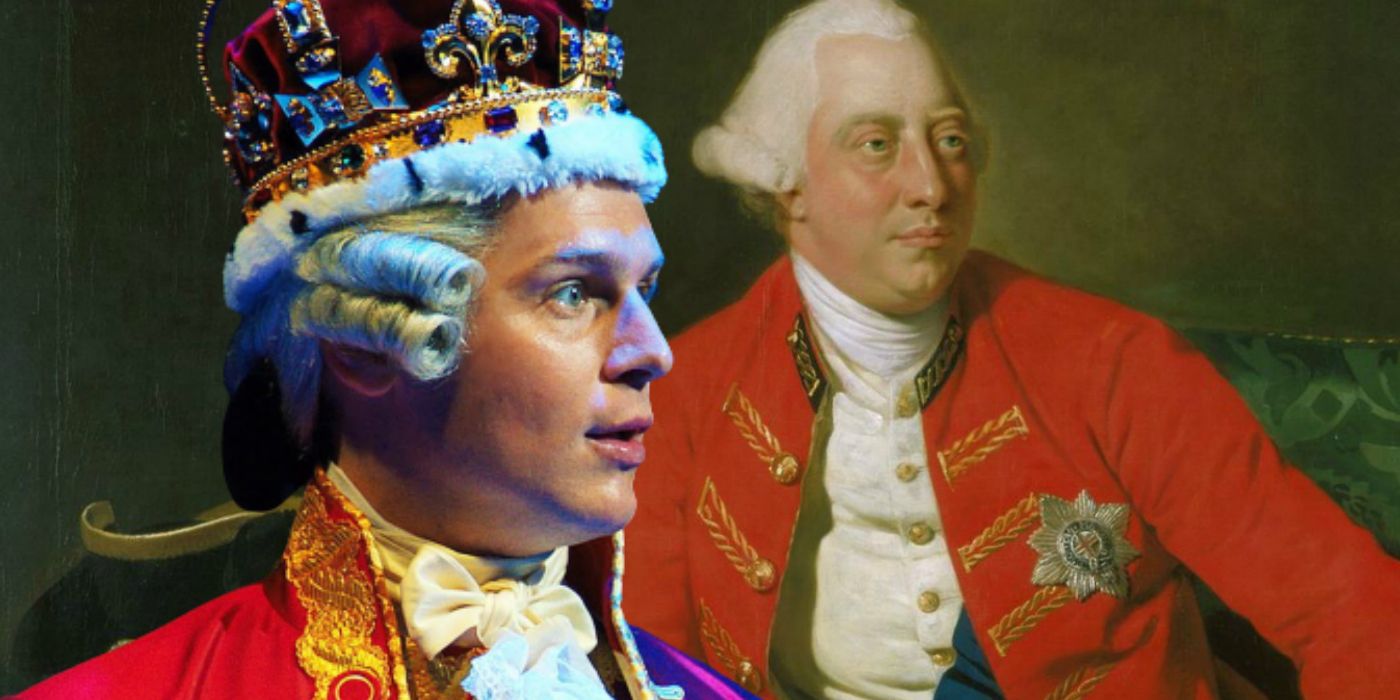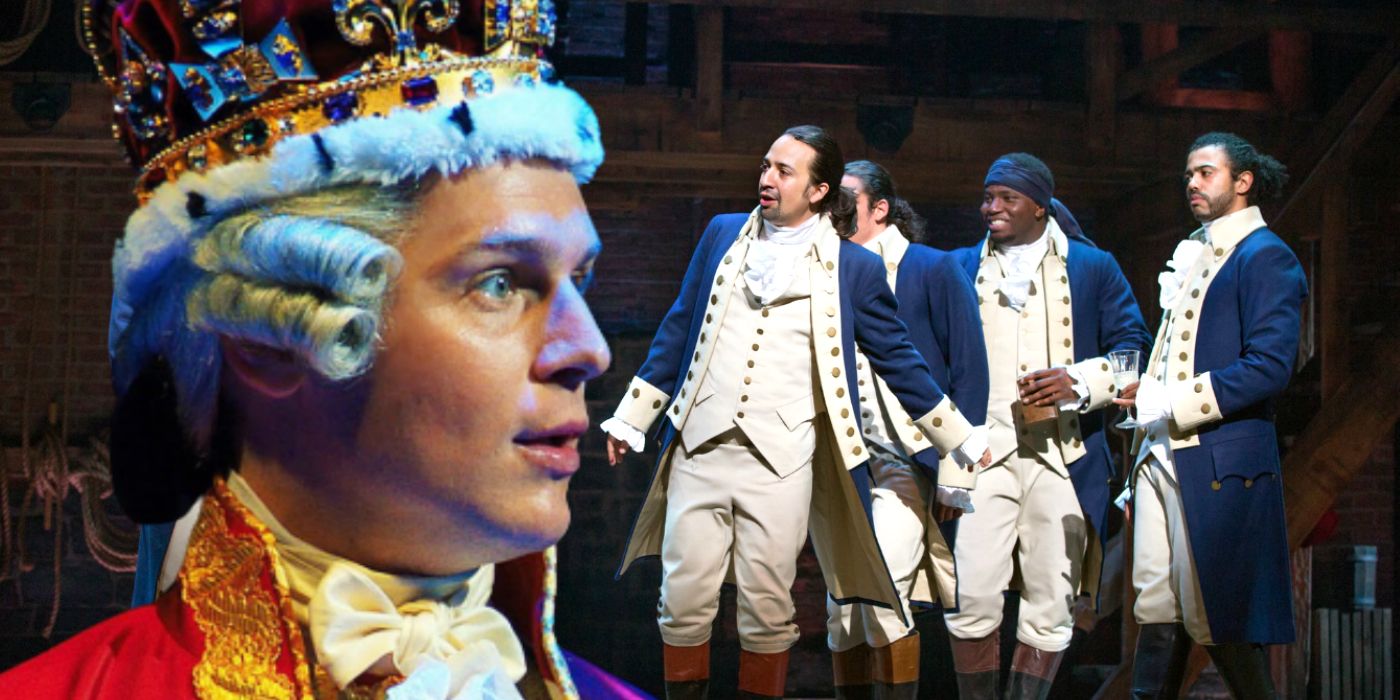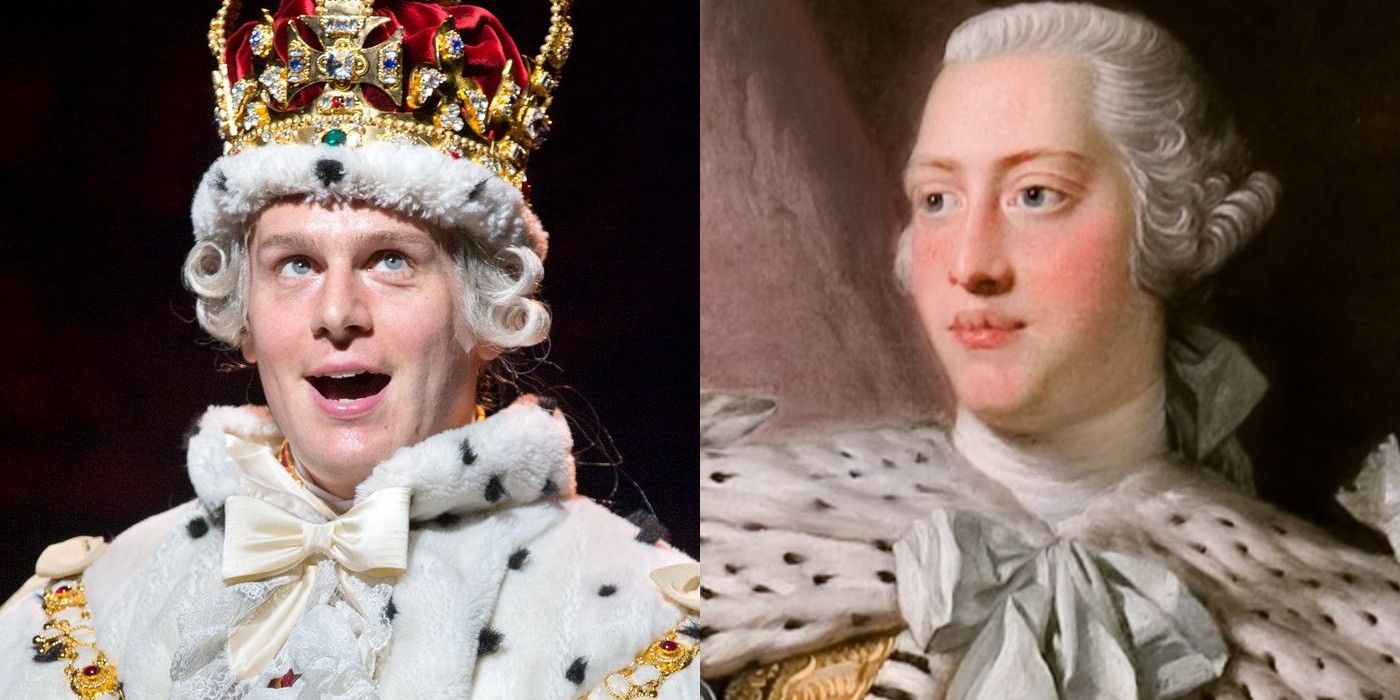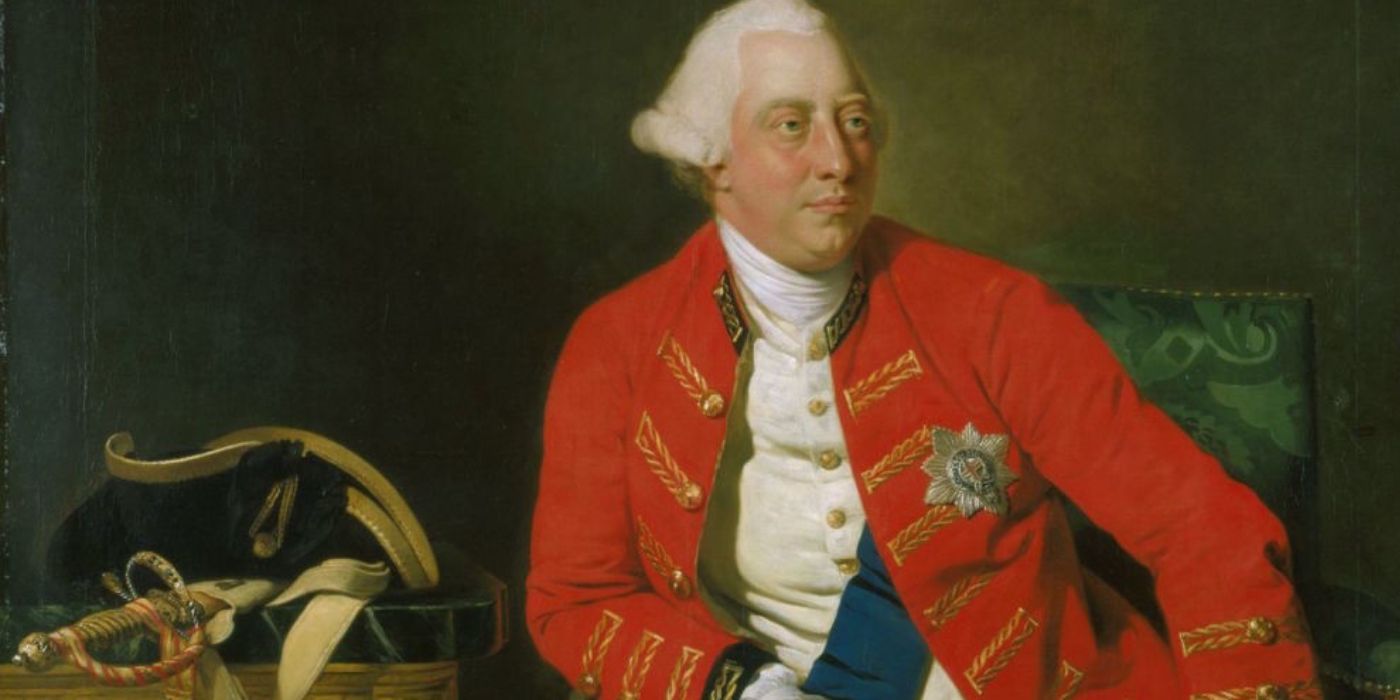Lin-Manuel Miranda's musical Hamilton portrays King George III in a striking and unique way: he seems more like a jealous ex-boyfriend than a king of a world super-power. George III, played by Jonathan Groff, functions as the musical's comic relief, as he appears intermittently to comment on Hamilton's events. Given Hamilton's occasionally questionable portrayal of historical figures, however, it is understandable that some viewers may wonder how accurate this portrayal is.
King George appears three times throughout the musical, each time singing a humorous song in a style that is quite a departure from the rest of the music. While most of the Hamilton's songs are rap and hip-hop infused, King George's sound significantly more old-fashioned. This musical style, coupled with his eccentric mannerisms, clearly set him apart. In just three songs, King George proves himself as one of the most memorable characters in Hamilton.
Hamilton: Why King George Spits So Much
King George's boisterous depiction might seem too over-the-top to be true. With his small amount of stage-time, it is inevitable that much of his life and personality would be left out of the show. Still, some of what Hamilton does depict is not entirely true to real life, as Miranda clearly values entertainment over accuracy in this regard. Here's what Hamilton leaves out and changes about King George III.
King George III as a Ruler
In Hamilton, King George terrifies his servants, laughs maniacally, and threatens to "kill your friends and family to remind you of my love." However, the real George III was not nearly as bumbling or evil as the musical depicts. Despite experiencing relatively slow mental development as a child, George III was precocious as a teenager. At 12, he suddenly became heir apparent to the British Crown after the death of his father, George II, and he was coronated at the age of 22.
Hamilton suggests that George III was a tyrant: after learning that Washington has yielded his power, he sings, "I wasn't aware that was something a person could do." This was not the case in real life. Rather than becoming egotistical, George III was notoriously distrustful of himself, yet determined to rule well. He carefully nurtured England's culture, creating the Royal Academy of Arts. As King, he inherited the Seven Years War and all of the financial burdens that came with it. He was able to end the war three years into his reign, but the monetary damage was already done. This instability was one of the major reasons George III taxed the American colonies so heavily: he wasn't purposely selfish or evil, but he needed the money for his country.
George III's "Madness"
Despite George III's best efforts to be a good king, his mental health declined along with his ability to rule. At the time, little knowledge existed about mental illness, so he was simply deemed "mad." He would talk to himself until he lost his voice and foamed at the mouth, rarely slept, screamed incoherently at advisors, and wrote extremely long letters to just about anyone. Contemporary historians and psychologists have looked into this behavior, concluding that he may have been dealing with "acute mania" (via ThoughtCo) - similar to what would be described today as bipolar disorder. These bouts of mania came on intermittently throughout his life, and as he aged, his condition became permanent. Eventually, his son, who would become King George IV, ruled for him.
Hamilton never explicitly mentions George III's mental illness, but it hints at it. Groff's performance raises suspicions of mental instability, as his eyes often look empty, and his smile unsettling. Some of his lines - "They will tear each other into pieces. Jesus Christ, this will be fun" - can be interpreted as an implication of mental illness or, as is often said of King George III, "madness." However, these lines only scratch the surface of George III's psyche and seem to be more of a commentary on his character and morality than on his mental health. George III's mental illness certainly made him unstable, but there's little evidence that it made him malevolent.
George III's Death and Legacy
Hamilton does not touch on George III's life beyond his dealings with the United States, so his death was wholly left out of the play. George III was entirely incapacitated by his mental illness and dementia for the last nine years of his life. He died at 82 years old in Windsor Castle, where he spent the end of his life relatively isolated. Hamilton discusses the theme of legacies quite a bit, and George III left a significant one. His son reigned as King of England for ten years before his death and was succeeded by George III's granddaughter.
George III's legacy as it stands today is slightly more complicated. The Declaration of Independence explicitly calls George III tyrannical, but as time goes on, modern historians question this perspective. Many scholars today view him as a well-intentioned ruler who found himself in unfortunate circumstances, forced to deal with a significant shift in the global political landscape while suffering from severe mental health issues.
Reading through this information, one could draw the conclusion that Hamilton presents George III inaccurately. However, the answer is not quite that simple. Hamilton portrays the American Revolution from the perspective of revolutionaries, so bias is inevitable. Presenting modern historian's sympathetic view of George III would not be a realistic depiction of the political climate at the time. The version of George III viewers see on stage may be an oversimplification, but it is most likely accurate to the way Hamilton's lead characters saw him.
Hamilton may have depicted King George III as a somewhat one-dimensional character, but it did so at the benefit of the play. George III works wonderfully as comic relief, and his commentary on the birth of the United States is both insightful and entertaining. While many criticize Hamilton for occasionally prioritizing the story over the true history, it is essential to consider that George III is not the main focus of the musical. The true George III was an intriguing and complicated human being, but Hamilton did not have enough for him.
Hamilton: Biggest Differences Between Broadway & The Disney+ Movie




